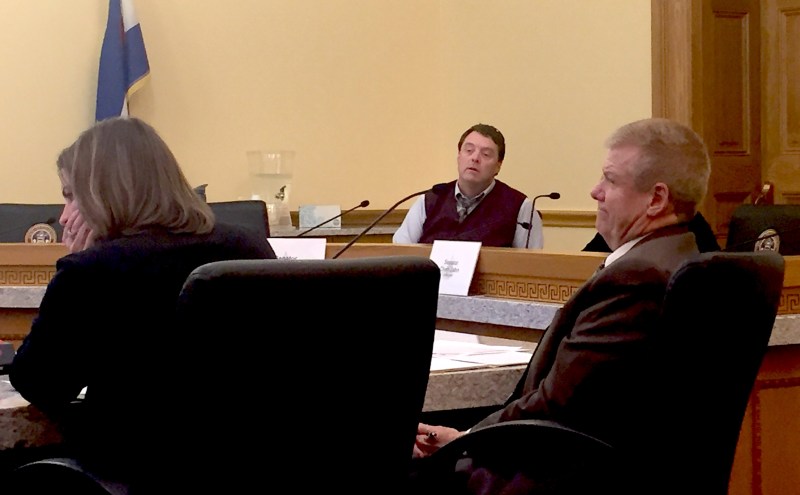Colorado Republicans Vote for Big Government, Against Fair Fares for RTD Riders

Imagine you own a shoe store and every time you want to give customers a discount, you have to ask the National Shoe Retailers Association for permission, which could take months or years to give you an answer.
That’s how Senator Tim Neville and his Republican colleagues want RTD to handle its business. Neville’s bill, SB 204, would require RTD to get permission from the Colorado General Assembly before offering discount fares — be it an overhaul of the agency’s bulk transit passes or a weekend promo for a Rockies game.
The Senate Finance Committee voted 3 to 2 Tuesday to advance the bill to the floor. Neville, along with Republican senators Vicki Marble and Jack Tate, voted in favor. Senator Lois Court, a Democrat, and Senator Cheri Jahn, who is unaffiliated, voted against.
Court pointed out the absurdity of subjecting RTD fare policy, which is already determined by an elected board, to a potential veto by the state legislature. “The notion of telling an elected board, that is elected by the people in the metro area, that they have to get permission from the entire legislature — someone who lives in Sterling or Montrose or Grand Junction telling the elected metro area board what they can and can’t do — just offends my sense of the way our democratic republic works,” she said.
The main impact of the bill — and the reason it’s surfacing now — would be to interfere with developing plans to make fares more affordable to low-income Denver residents. While many of Neville’s constituents live in the transit district, the bill is co-sponsored in the House by Representative Kimmi Lewis. She’s a cattle producer from southeast Colorado who’s district boarders Oklahoma and falls well outside RTD’s boundaries.
“I feel like there’s a huge disconnect with who is riding the bus and who is… trying to implement the rules to which bus riders are supposed to be adhering,” said Jenee Donelson, a transit organizer with 9to5 Colorado who testified at the hearing. “Low-income riders are also taxpayers, which means they are also investors within the RTD themselves. They are also people that should be honored as they are working low-wage jobs and are pretty much funding the system, not taking from it.”
RTD’s Pass Program Working Group recently recommended an overhaul of the fare pass program that includes free fares for some kids, a 70 percent discount for others, and a 40 percent discount for low-income residents. RTD would offset the cost of those discounts by adjusting its bulk fare programs for businesses, colleges, and non-profits.
This fare policy overhaul is projected to increase ridership and to pay for itself by 2021 [PDF].
I asked Neville whether he had seen those figures. “Nobody’s copied me on the Pass Program Working Group,” he said.
Neville’s bill has little chance of reaching the governor’s desk, given Democratic control of the House. But six people testified against it on principle: reps from 9to5, RTD, the Denver Women’s Collaborative, AARP, and the Colorado Fiscal Institute.
“To be honest with you I think that the state here is taking a big step in looking over elected officials’ shoulders,” said Larry Hoy, an RTD director who represents the northern suburbs. Hoy said Neville’s proposal would be like if the federal government told the state legislature, “Before you pass that bill, it has to go to Congress.”
No one testified in favor of the bill.


